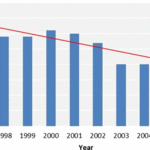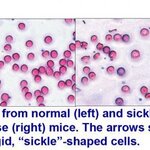
Antidepressants are commonly prescribed for depression but their efficacy is questionable - many people don't experience symptom relief.
The National Institute of Mental Health's STAR*D study, the largest and longest study ever conducted to evaluate depression treatment, may have a better way; identifying predictors of antidepressant response. f
Approximately one-third of patients responded within their initial medication trial and approximately one-third of patients did not have an adequate clinical response after being treated with several different medications. Identifying…

